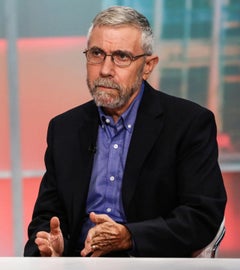MI SELECCIÓN DE NOTICIAS
Noticias personalizadas, de acuerdo a sus temas de interés

But that formulation is itself an evasion, as Josh Marshall, Greg Sargent and Duncan Black have pointed out - each making a slightly different but crucial point.
First, as Mr. Marshall, the editor of Talking Points Memo, recently wrote (bit.ly/1GcABti), the Iraq invasion was not a good faith mistake. President George W. Bush and Vice President Dick Cheney didn’t sit down with the intelligence community, ask for its best assessment of the situation and then reluctantly conclude that war was the only option. They decided right at the beginning - even before the dust of 9/11 had settled - to use a terrorist attack by religious extremists as an excuse to go after a secular regime that, evil as it was, had nothing to do with that attack.
To make the case for the splendid little war that they wanted to fight, they deliberately misled the public, making an essentially fake case about weapons of mass destruction - because chemical weapons, which many believed Saddam Hussein had, are nothing like the nukes they implied he was working on - and insinuating the false claim that Saddam was behind 9/11.
Second, as Mr. Sargent at The Washington Post says, even this isn’t hindsight (wpo.st/yGmH0). It was quite clear at the time that the case for war was fake (God knows I thought it was glaringly obvious, and I tried to tell people) and fairly obvious as well that the attempt to create a pro-American Iraq after the invasion was likely to be an expensive failure. So the question for war supporters shouldn’t be: “Would you have been a supporter knowing what you know now?” It should be: “Why didn’t you see the obvious back then?”
Finally, and this is where the blogger Mr. Black comes in (disq.us/8ncphx), part of the answer is that a lot of Very Serious People were effectively in on the con. They, too, were looking forward to a splendid little war; or they were eager to burnish their nonhippie credentials by saying, “Hey, look, I’m a warmonger too!” Or they shied away from acknowledging the obvious lies because that would have been partisan, and Very Serious People pride themselves on being centrists. And now, of course, they are very anxious not to revisit their actions back then.
Can we think about the economic debate the same way? Yes, although it’s arguably not quite as stark. Consider the long period when Paul Ryan, the Republican chairman of the House Budget Committee, was held up as the very model of a serious, honest conservative. If you were willing to do even a little bit of homework, it was obvious from the beginning that he was a fraud, and that his alleged concern about the deficit was just a cover for the real goal of dismantling the welfare state. Even the inflation craziness may be best explained in terms of the political agenda: People on the right were furious at the Federal Reserve for, as they saw it, heading off the fiscal crisis that they wanted to use to justify their anti-social-insurance crusade. So they put pressure on the Fed to stop doing its job.
And the Very Serious People enabled all of this, just as they enabled the Iraq lies.
But back to Iraq: The crucial thing to understand is that the invasion wasn’t a mistake, it was a crime. We were lied into war.
And we shouldn’t let that ugly truth be forgotten.
En el sector agroindustrial, el clúster de café muestra cómo los encadenamientos productivos permiten avanzar hacia mercados de mayor valor
En fin el Año Nuevo es esa fiesta global en la que todos juegan a creer que tenemos un botón mágico para asegurar que se van a cumplir los deseos
En términos de urgencia, la prioridad debe ser la asignación de nueva capacidad que no tiene un límite intrínseco diferente al costo de expansión del sistema, perfectamente gestionable con planeación y señales económicas claras